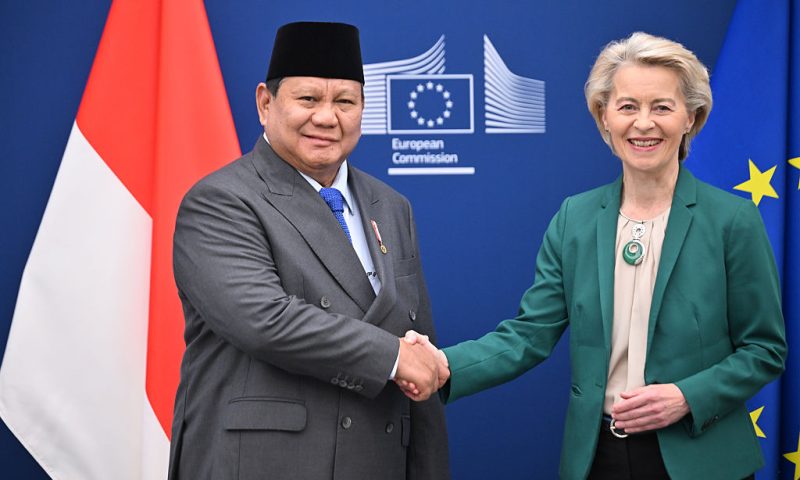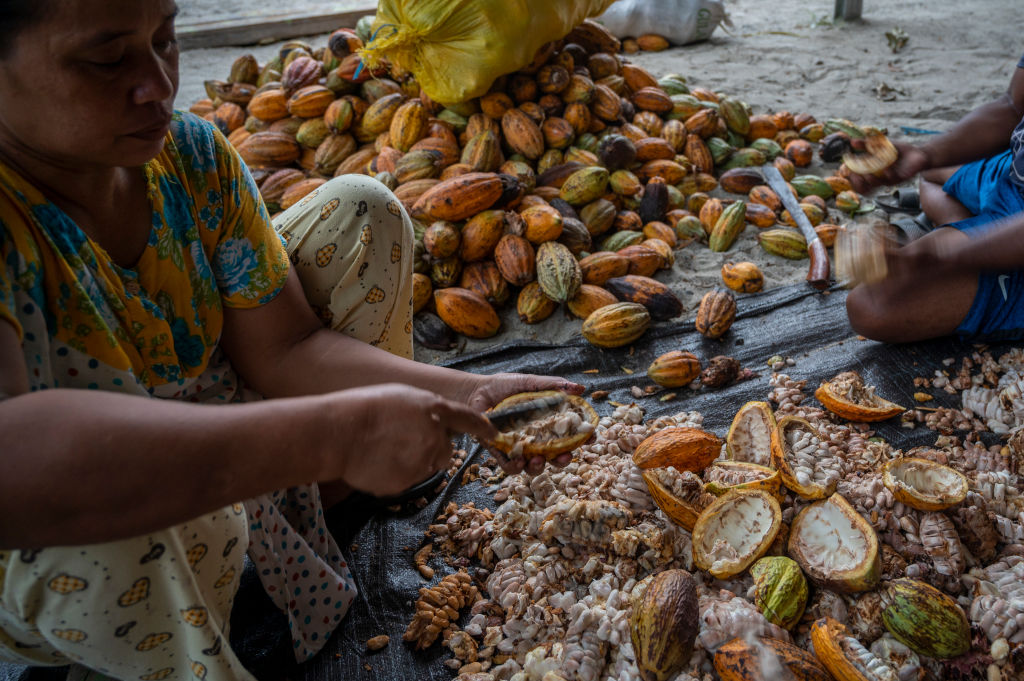Indonesia still has major concerns over the EU’s anti-deforestation rules and their impact on smallholder farmers – even as ties between Jakarta and Brussels reach a high point ahead of next week’s signature of a trade and political deal.
Indonesia is a leading producer of cocoa, palm oil, coffee, and rubber – all covered by the EU’s anti-deforestation regulation (EUDR), which takes effect on 30 December. The rules will require companies to prove, using geolocation data, that products sold on the EU market do not come from deforested land.
Jakarta fears the burden will fall disproportionately on its nearly eight million smallholder farmers. Officials are stepping up pressure on the European Commission to provide more support for implementation.
“EUDR is there, and there’s nothing we can do about it. Even if we wanted to revise it, this is a regulation that we have to comply with,” said Erma Rheindrayani, director for Americas and Europe at Indonesia’s Foreign Affairs Ministry, speaking at an embassy event on Monday. She stressed that the focus must now be on “implementation, so smallholders don’t suffer.”
EU pauses tariff response to US, Indonesia trade breakthrough announced
BRUSSELS – European Commission President Ursula von der Leyen announced on Sunday afternoon that the…
2 minutes

Febriani Sumbung, a cocoa farmer from West Papua who leads a cooperative of 170 producers, warned of heavy costs. “We recently tried to map out polygons. It cost thousands of dollars – and even then, not all farmers were included,” she said.
A delegation of nine female smallholders, accompanied by Indonesian officials, will raise the issue today directly with EU officials at the Commission’s environment (DG ENV) and international partnerships (DG INTPA) directorates.
Indonesian diplomats said they are not asking for a formal delay to the rules and underlined that no concessions on EUDR are foreseen in the EU-Indonesia Comprehensive Economic Partnership Agreement (CEPA). “At the moment no, but we are hoping for that,” one diplomat said.
According to the diplomats, some palm oil buyers are already shifting to Malaysia – the world’s second-largest palm oil producer – where meeting geolocation requirements is seen as easier.
Brussels and Jakarta are expected to conclude CEPA in Indonesia on 23 September, though the host city has yet to be confirmed, according to multiple sources.
(adm, cz)

